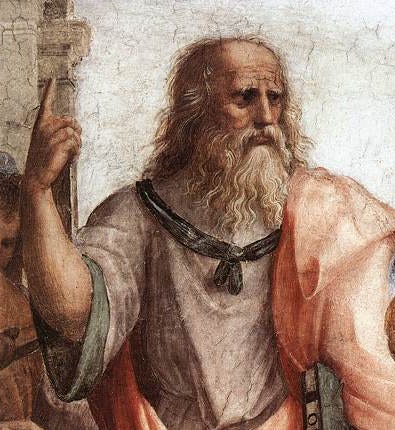
I have posted two excerpts from an old blank verse dialogue, selecting the most readable sections. You can find them here and here.
Brief recap:
The black-robed Philosopher, Aurelius (a fictional character, not Marcus Aurelius), is lecturing a young woman, Julia, and a small audience.
In Part One, he recounts his journeys across the globe in search of knowledge, whilst the two look out upon an ocean sunset. He comments on how in all the various sights, he found “beauty, silent and intangible”.
In Part Two, he is prompted to clarify a throwaway remark about “all the worlds”, and states his belief that the universe holds many finite “worlds” (i.e., planets), some of which are lifeless but some of which may have life or even whole civilisations.
In this third part, he reaches the climax of his monologue: rising from the diverse beauties of one planet, to the diverse wonders of the whole cosmos, to an intellectual vision of the infinite source of all things.
As the Professor says in The Chronicles of Narnia: “it’s all in Plato, all in Plato.” (But see the clarifying footnote!)1
*
Aurelius (Continued): You look amazed. It is no great surprise That other worlds like this one can be found. But there's another world, unlike in kind To all we have described — a sphere divine, To which the most exalted of our thoughts Can barely touch, where human language fails, And only awe and wonder can suffice. All that we see and love within this world Is there, though without colour, shape or form: For there all things are one — the glowing sun, The foaming seas, the evening sky's warm hues, And all that speaks of beauty, all that lives, Moves, breeds and thrives upon this teeming earth, And man, its crowning glory: all we see Is present in that essence infinite, The fountain of all things, the plenitude, Which into many shapes and forms o'erflows: Whilst it remains one, simple, infinite, Eternal, changeless, perfect in all things. *
The monologue continues, presenting a semi-Christianised Platonism in which this infinite One is not mindless or purposeless (and is clearly equated with a monotheistic notion of God). But these initial lines are the best poetically.
I also like the following:
*
Aurelius (Continued): Though this world is unseen, it is the source From which all worlds come forth: if other planes Exist, beyond the scope of human thought, Where creatures live and dwell, even these worlds Would have existence only through this One — The Origin and End of all that is — The stable axis, round which all the worlds Revolve, like planets round their native stars, For here there is no shadow of a change. *
As an agnostic, I will not claim that this dialogue presents a true picture of things, though at the time of writing I did believe in it — or, to say it better, believed that these metaphors approximated the truth.
More specifically, I believed in Christianity, and thought that the philosophical visions of the Platonists (and other pre-Christian thinkers like the sages of the Upanishads) had a lot of truth to them insofar as they were compatible with Christianity.
If you enjoy these lines of poetry, please comment. Thank you.
Verses and text © Metrical Poet, 2025.
But is that true? Diotima’s speech in Plato’s Symposium is obviously a source, but so is the “Neo-Platonism” of Plotinus, and Christian reinterpretations of the Platonic tradition.



